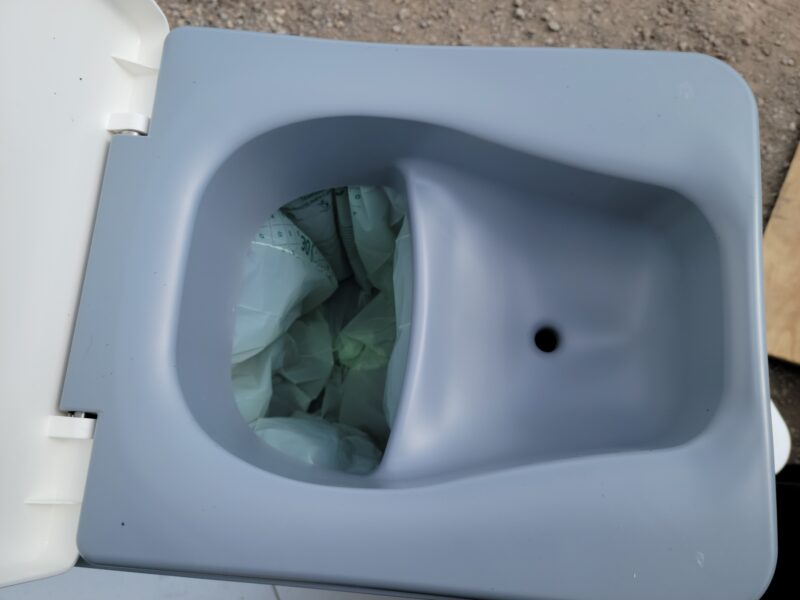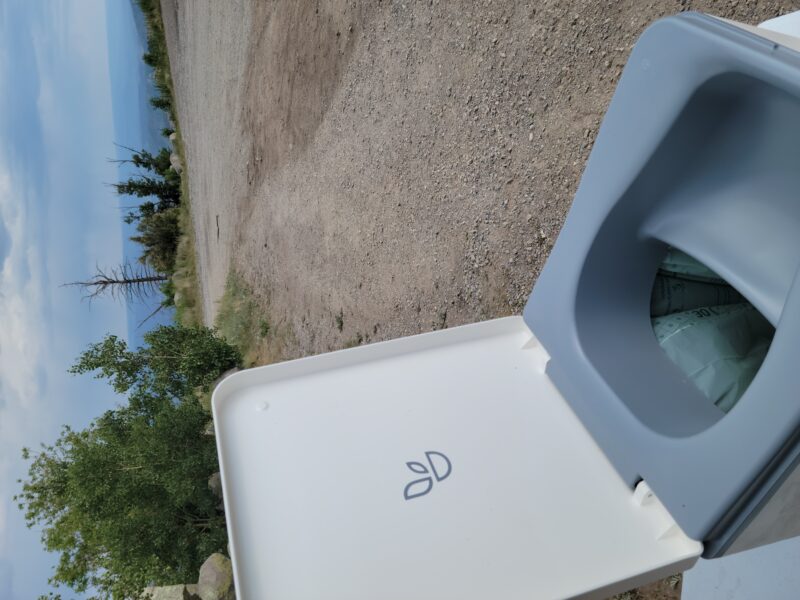
Today, we need to talk about a somewhat dirty topic. In fact, it’s one most people avoid at a deep level. When people perform this basic bodily function, we usually pretend like something else is happening, even in the very words our languages use. Whether we’re visiting the restroom, taking a leak, or trying to find the “little girl’s room,” we never just out and say that we’re going to poop (at least in polite company).
While we don’t want to talk about it, we certainly expect to be able to do it. Every city is expected to have a sewage system of some kind. When driving on road trips, we expect to be able to utilize these systems in every small town we pass through, and often part-way between the towns at government-run “rest areas” (where rest does occur, of course, but lots more bathroom use happens). Even out in the woods, we expect entities like the US Forest Service and National Park Service (and their equivalents outside of the United States) to provide a vault toilet or a port-a-potty.
But, if you’re going to go even further afield, the task of taking care of your business falls back on you. RVs often have a built-in toilet and shower. A variety of portable toilet options exist. At worst, you’ll need to dig a hole and bury your waste in the wild. But, as populations increase and outdoor destinations get more and more popular, cracks in this system are starting to show.
Please take your human waste with you when you leave public lands. For the past five years, we have partnered with Arizona Game & Fish Department, Oak Creek Watershed Council, National Forest Foundation, and Arizona Department of Environmental Quality to try and steward the area… pic.twitter.com/LveymfygLX
— Coconino NF (@CoconinoNF) June 28, 2023
Making a plan to carry your own poop emojis away isn’t as simple as it sounds, unfortunately, and that’s especially true if you care about the environment. Buckets and bags tend to make quite a stink in your car or on your bike, and that’s even when they don’t spill or leak. Chemical and cassette toilets are more pleasant to be around, but you still have to find a place to empty them and clean them out (a process that can sicken you if you make one wrong move), and they usually require water to function, meaning that you have to pack even more heavy things along.
There has to be a better way, right?
Enter Composting Toilets
Most people assume that sewage has to stink, but that’s not really true. The worst of the stink happens when you mix things. Forests are full of animals, but the whole place doesn’t stink. When a squirrel pees, the stuff soaks into the soil and/or evaporates. When a deer poops, the little pellets dry up and decompose, feeding the ecosystem. What the animals almost never do is mix these two things together and let them sit wet.
So, if we want to not have our waste stink us away, we have to do the same thing with it.

Composting toilets do this already by design. They almost always have a “urine diverting” system that (literally) funnels the stuff into a separate place from the poop. The poop can then be buried in something like peat moss, coconut coir, or another drying material to keep the bacteria from flourishing and stinking to high heavens.
The other great thing about composting toilets is that you don’t have to do anything special with the waste. Instead of needing to find a dump station for highly hazardous waste, you’re dealing with two separate things that are far less of a problem. The pee can be poured out on plants as long as you aren’t using the same spot too often, or it can simply be poured into the next toilet you come across. The poop can, of course, be put into a composting process to finish composting, but given that you’ve got a bag of drying poop, it’s not legally or environmentally much different from a soiled diaper. So, you can bag up the poop and drying matter and just throw it in the trash.
Trelino’s Toilets Simplify This Process Greatly

While there are many ways to set up a composting toilet, including using separate buckets for pee and poop, the process can still be troublesome. Some people build a DIY toilet that separates things, but having to go through a trial-and-error process with poo and pee can become very un-fun very fast.
Fortunately for me, I got hold of the people at Trelino with questions and they ended up offering a review unit (The Evo L unit, $550 as of this writing). Being a toilet, they’re also not going to want it back (I sure wouldn’t accept returns on it!).
The biggest thing that impressed me was just how integrated and well thought-out the whole thing is. Obviously, it has to start with separating liquids and solids, but the planning obviously continued. Liquids pass through a flexible tube and into a sealed container with a carrying handle. The lid lets liquids through, but there’s a special slot at the base of the unit where the solid, completely sealed lid is stored. Both the pee tank and the poo box are fitted to the base of the unit so they won’t tip over or leak inside, even if you have to gently move the unit around. For bigger moves (traveling in a car, for example), you can lid up either or both containers to make spills impossible.
The top of the unit also has a lid that closes and seals up, keeping any remaining smell from permeating a tent, van, or other enclosed space. There’s also room for some limited storage of bags, drying matter, and other small things around the tank and bin.

Overall Thoughts
On my trip, I went up a steep mountain road with the toilet packed in a small trailer. Some things in the load shifted, and one other piece of gear broke. While I know I need to do better at cargo management before going out on mountain roads again, I also know that the Trelino composting toilets are well-built. The unit took a bit of a tumble, both when moving and when I opened the hatch on the trailer. Nothing broke, leaked, or otherwise ruined our day!
I don’t want to get into any dirtier details, but it suffices to say that the unit works as advertised, doesn’t bother people who sleep near it, and isn’t too fragile for outdoor adventures. It’s well-designed and thought out, with most problems solved from the factory.
So, I’d very much recommend this product if you’re in the market for a portable toilet.
Images by Jennifer Sensiba.
I don’t like paywalls. You don’t like paywalls. Who likes paywalls? Here at CleanTechnica, we implemented a limited paywall for a while, but it always felt wrong — and it was always tough to decide what we should put behind there. In theory, your most exclusive and best content goes behind a paywall. But then fewer people read it! We just don’t like paywalls, and so we’ve decided to ditch ours. Unfortunately, the media business is still a tough, cut-throat business with tiny margins. It’s a never-ending Olympic challenge to stay above water or even perhaps — gasp — grow. So …



